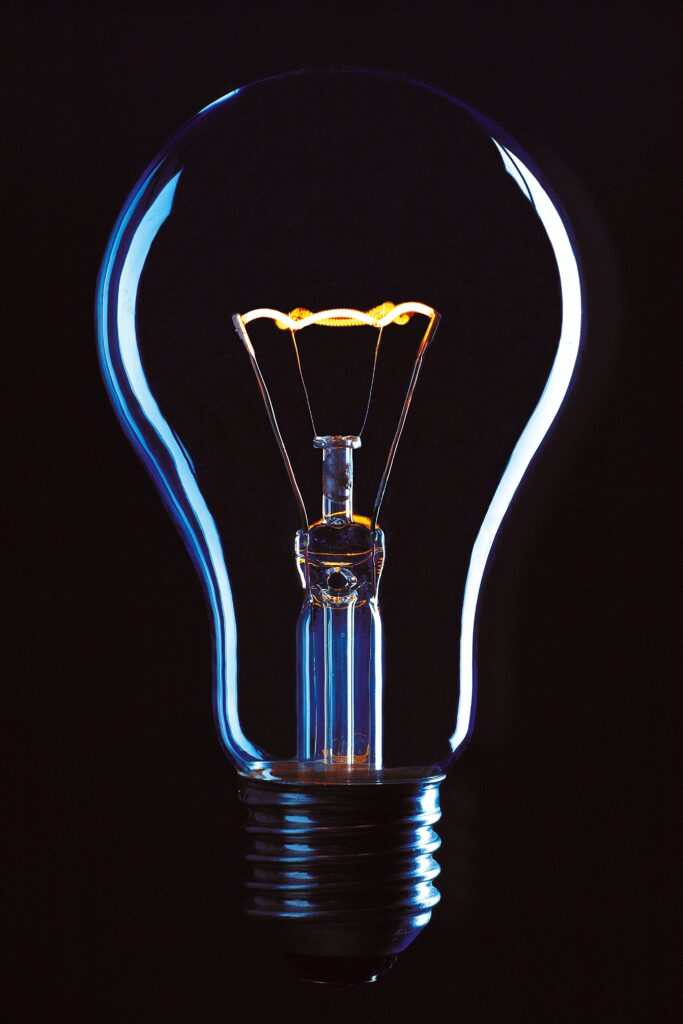You want to know just how noisy a solar generator can be, and we’re here to shed some light on the subject. Solar generators are known for their eco-friendly power generation, but what about the noise they produce? In this article, we’ll explore the noise levels of solar generators and help you understand how quiet or loud they can be, so you can make an informed decision for your energy needs. So, let’s get started and find out if these generators are all whisper and no hum.
Understanding Solar Generators
What is a solar generator?
A solar generator is a portable device that converts solar energy into electricity, providing a clean and sustainable power source. Unlike traditional generators that rely on fuels like gasoline or diesel, solar generators harness the energy from the sun through photovoltaic panels. This allows users to have access to electricity even in remote locations or during power outages. Solar generators are versatile, efficient, and environmentally friendly.
How does a solar generator work?
Solar generators work by using photovoltaic panels to capture sunlight and convert it into direct current (DC) electricity. These panels are made up of several solar cells, typically made of silicon, which generate electricity when sunlight hits them. The DC electricity produced by the solar panel is then converted into alternating current (AC) electricity through an inverter. The AC electricity can then be used to power various electronic devices and appliances.
Components of a solar generator
a solar generator consists of several components that work together to generate and store electricity. The main components include:
- Solar panels: These are the key components that capture sunlight and convert it into electricity.
- Charge controller: This device regulates the flow of electricity from the solar panels to the battery to prevent overcharging and damage.
- Battery: The battery stores the electricity generated by the solar panels for later use.
- Inverter: The inverter converts the DC electricity from the battery into AC electricity, allowing it to power electronic devices and appliances.
- Wiring and connectors: These components connect the solar panels, charge controller, battery, and inverter, allowing the flow of electricity between them.
Noise Factors in Solar Generators
Sources of noise
Unlike traditional generators that rely on internal combustion engines, solar generators produce minimal noise. The primary source of noise in a solar generator comes from the cooling fans found in the inverter. These fans help dissipate heat and ensure that the inverter operates at an optimal temperature. However, the noise emitted by these fans is usually not significant and often comparable to the background noise present in an average household.
Factors affecting noise level
The noise level of a solar generator is influenced by several factors, including the quality and design of the inverter and the efficiency of the cooling system. Higher-quality inverters with better insulation and more advanced cooling mechanisms tend to produce less noise. Additionally, the size and speed of the cooling fans can affect the noise level, with larger fans running at lower speeds typically producing less noise.
Comparing noise level with other generators
When compared to traditional generators, solar generators are significantly quieter. Traditional generators that rely on internal combustion engines produce a considerable amount of noise, often ranging from 60 to 100 decibels (dB) or more, depending on their size and power output. In contrast, solar generators typically produce noise levels well below 60 dB, making them suitable for various environments where noise pollution is a concern.

Noise Level of Solar Generators
Average noise level of solar generators
In general, the noise level of solar generators can vary depending on the specific model and its components. However, most solar generators produce noise levels ranging from 40 to 55 dB, typically during the operation of the inverter’s cooling fans. It is important to note that these noise levels are comparable to common household appliances, such as refrigerators or air conditioners, and are generally considered minimal and tolerable.
Measuring the noise of a solar generator
The noise level of a solar generator is typically measured in decibels (dB). This unit of measurement quantifies the intensity of sound. A decibel scale is logarithmic, meaning that an increase of 10 dB represents a doubling of the perceived loudness. To measure the noise level of a solar generator, a sound level meter or a smartphone app specifically designed for noise measurement can be used. These tools provide accurate measurements and help assess the noise produced by the generator.
Factors contributing to the noise level
Several factors contribute to the noise level produced by a solar generator. The most significant factor is the design and quality of the inverter. Higher-end inverters are often equipped with noise-reducing features such as insulation and high-efficiency cooling systems, resulting in lower noise emissions. Additionally, the size and speed of the cooling fans, as well as the overall construction of the generator, can impact the noise level. Optimal positioning and proper maintenance of the solar generator can also help minimize noise.
Inverter Types and Their Noise Levels
Types of inverters in solar generators
Solar generators utilize various types of inverters, each with its own noise characteristics. The three main types of inverters used in solar generators are:
- Modified Sine Wave (MSW) Inverters: These inverters provide a cost-effective solution but tend to produce a slightly higher level of harmonic noise. MSW inverters are suitable for most basic electronic devices and appliances.
- Pure Sine Wave (PSW) Inverters: PSW inverters produce a cleaner and more stable AC waveform, making them compatible with a wider range of electronic devices. They generally operate more quietly and efficiently but are typically more expensive than MSW inverters.
- Grid Tie Inverters: These inverters are specifically designed to feed excess electricity generated by the solar panels back into the power grid. They do not produce noise, as their main purpose is to convert DC to AC power for the grid.
Comparing inverter noise levels
When it comes to noise levels, PSW inverters are often quieter compared to MSW inverters. The production of harmonic noise in MSW inverters can result in a faint humming sound. On the other hand, PSW inverters provide a cleaner power output and tend to operate more silently. However, it is important to note that the noise levels produced by both types of inverters are generally minimal and within acceptable limits for most applications.
How inverter type affects overall generator noise
While the type of inverter can influence the noise level of a solar generator, it is essential to consider that it is only one factor among many. The overall noise level of a solar generator is determined by various components, including the inverter, cooling fans, and the quality of the generator’s construction. Therefore, choosing a solar generator with a high-quality inverter can contribute to reducing noise levels, but other factors also play a significant role in determining overall generator noise.

Effects of Noise Pollution
Understanding noise pollution
Noise pollution refers to the excessive or undesirable noise that disrupts the environment and affects human health and well-being. It can arise from various sources, including transportation, industrial activities, and the operation of machinery and appliances. Prolonged exposure to high levels of noise pollution can have detrimental effects on both humans and the environment.
Health effects of noise pollution
Excessive noise levels can have adverse effects on human health, including:
- Hearing damage: Prolonged exposure to high levels of noise can lead to permanent hearing loss or impairment.
- Sleep disturbances: Noise pollution can disrupt sleep patterns, leading to sleep deprivation and associated health issues.
- Stress and anxiety: Continuous exposure to noise can cause stress, anxiety, and reduced overall well-being.
- Cardiovascular problems: Research suggests a correlation between chronic noise exposure and increased risk of cardiovascular issues, such as hypertension and heart disease.
- Impaired cognitive function: Noise pollution can impair concentration, memory, and learning abilities.
Environmental effects of noise pollution
Noise pollution can also have significant impacts on the environment, including:
- Disturbance of wildlife: Loud noises can disrupt the natural behavior and communication of animals, leading to stress, reduced reproduction rates, and potential habitat displacement.
- Ecological imbalance: Noise pollution can disrupt the balance and interactions within ecosystems, affecting both flora and fauna.
- Disruption of natural soundscapes: Excessive noise can mask natural sounds, jeopardizing the ability of animals to communicate, find mates, and locate food sources.
Solar Generators and Noise Pollution
Noise pollution caused by solar generators
While solar generators are generally considered quiet, they can still contribute to noise pollution if not used properly or inappropriately positioned. The primary source of noise in a solar generator is the cooling fans in the inverter. However, the noise emitted by these fans is typically minimal and often comparable to everyday background noise. Proper maintenance and placement of the solar generator can significantly reduce any potential noise pollution it may cause.
Comparing solar generator noise pollution to other energy sources
When compared to other energy sources such as traditional generators or fossil fuel power plants, solar generators produce minimal noise pollution. Traditional generators relying on internal combustion engines generate high levels of noise, often exceeding 60 dB and potentially causing significant noise pollution in residential or camping areas. On the other hand, solar generators are much quieter, making them a favorable choice for noise-sensitive environments.
Reducing the noise pollution of your solar generator
To minimize the noise pollution caused by your solar generator, several steps can be taken:
- Positioning: Place the solar generator in a location that minimizes the transmission of noise to nearby areas, such as behind barriers or in well-insulated enclosures.
- Maintenance: Regularly clean and maintain the solar generator, especially the cooling fans, to ensure optimal performance and reduce any noise caused by dirt or debris.
- Upgrading components: Consider upgrading to a higher-quality inverter with noise-reducing features to further minimize noise emissions.
- Soundproofing measures: Utilize soundproofing materials or enclosures to further reduce the noise transmission from the solar generator.

Myths and Facts About Solar Generator Noise
Common myths about solar generator noise
- Myth: Solar generators are noisy and disruptive.
- Fact: Solar generators are designed to be quiet, producing minimal noise compared to traditional generators.
- Myth: Solar generator noise is comparable to that of a gas-powered generator.
- Fact: Solar generators, on average, produce significantly lower noise levels than gas-powered generators, making them a quieter alternative.
- Myth: Solar generator noise can only be reduced by compromising performance.
- Fact: Higher-quality solar generators can provide both efficient performance and minimal noise due to improved design and better components.
Facts about solar generator noise
- Fact: The primary source of noise in a solar generator is the cooling fans of the inverter.
- Fact: Solar generators generally produce noise levels ranging from 40 to 55 dB, which is typically comparable to common household appliances.
- Fact: Proper placement and regular maintenance of a solar generator can significantly reduce any noise it may produce.
- Fact: Upgrading to a higher-quality inverter can help minimize noise emissions while maintaining the generator’s performance.
Debunking myths about solar generator noise
- Myth: Solar generators are as noisy as traditional generators.
- Fact: Solar generators produce significantly lower noise levels compared to traditional generators, resulting in a quieter operation.
- Myth: Solar generator noise is a nuisance for residential areas.
- Fact: Solar generators are generally quiet enough to be used in residential areas without causing significant noise disturbances.
- Myth: Solar generator noise cannot be reduced without sacrificing power output.
- Fact: By selecting a well-designed solar generator with noise-reducing features, it is possible to minimize noise without compromising performance.
Solar Generators in Residential Areas
Noise level of solar generators for home use
Solar generators are well-suited for residential use due to their quiet operation. The noise level produced by solar generators is generally below 60 dB, which is comparable to or even lower than the noise generated by household appliances like air conditioners or refrigerators. This makes solar generators an ideal choice for homeowners who prioritize a peaceful and noise-free environment.
Regulations and rules for generator noise in residential areas
Depending on your location, specific regulations and rules may govern the acceptable noise levels produced by generators in residential areas. These regulations aim to protect the well-being and comfort of residents. It is essential to familiarize yourself with local noise regulations and ensure that your solar generator complies with the noise limits set by your municipality or homeowners’ association.
Solar generators vs other generators in terms of noise in residential areas
When compared to other types of generators, such as gas-powered generators or diesel generators, solar generators are significantly quieter and produce much lower noise levels. Gas-powered generators can often exceed 60 dB and cause significant noise pollution, while solar generators operate well below this level. The noise reduction provided by solar generators makes them a more favorable choice for residential areas, promoting a peaceful living environment.
Using Solar Generators in Quiet Areas
Noise considerations for solar generators in camping and RV use
When using solar generators in camping or RV environments, noise considerations are crucial. Many camping sites have specific regulations to maintain the peacefulness of the surroundings. Solar generators are an excellent option for these scenarios, as they produce minimal noise, typically ranging from 40 to 55 dB. Be sure to position your solar generator away from camping sites to minimize any potential noise disturbance.
Noise impact on wildlife
In quiet outdoor areas, such as national parks or wildlife reserves, noise pollution can have a significant impact on wildlife. Loud noises can disrupt their natural behaviors, stress them, and cause them to abandon their habitats. Solar generators, with their minimal noise emissions, present a more environmentally friendly option that minimizes disturbances to wildlife and helps preserve the natural soundscapes of these areas.
Choosing a quiet solar generator for outdoor use
When selecting a solar generator for outdoor use, it is essential to consider its noise level. Look for solar generators with noise-reducing features, such as insulated enclosures and advanced cooling systems. Additionally, checking the dB rating provided by the manufacturer can give you an idea of its noise output. Opt for solar generators that produce noise levels below 60 dB to ensure a quiet and enjoyable outdoor experience.
Future of Solar Generators and Noise Production
Technological advancements to reduce solar generator noise
As technology continues to advance, efforts are being made to further reduce the noise produced by solar generators. Manufacturers are developing quieter cooling systems, more efficient fans, and improved insulation to minimize noise emissions. Ongoing research and development aim to enhance the overall design and construction of solar generators to provide even quieter operation without compromising performance or efficiency.
How manufacturers are addressing the issue of noise
Manufacturers of solar generators are increasingly focusing on noise reduction as a key aspect of design and development. They are incorporating noise-reducing features in their inverters, utilizing higher-quality components, and implementing advanced cooling mechanisms. By prioritizing low-noise operation, manufacturers are ensuring that solar generators remain quiet and suitable for a wide range of applications, from residential use to outdoor recreational activities.
Future expectations for solar generator noise
In the future, with continuous advancements in technology and increased consumer demand, the expectation is that solar generators will become even quieter. As manufacturers refine their designs and incorporate noise-reducing features, consumers can look forward to solar generators that produce minimal noise, rivaling the silence of their surroundings. The future of solar generator noise is expected to be quieter, allowing for greater integration into noise-sensitive environments and providing a clean energy solution without compromising comfort or tranquility.




